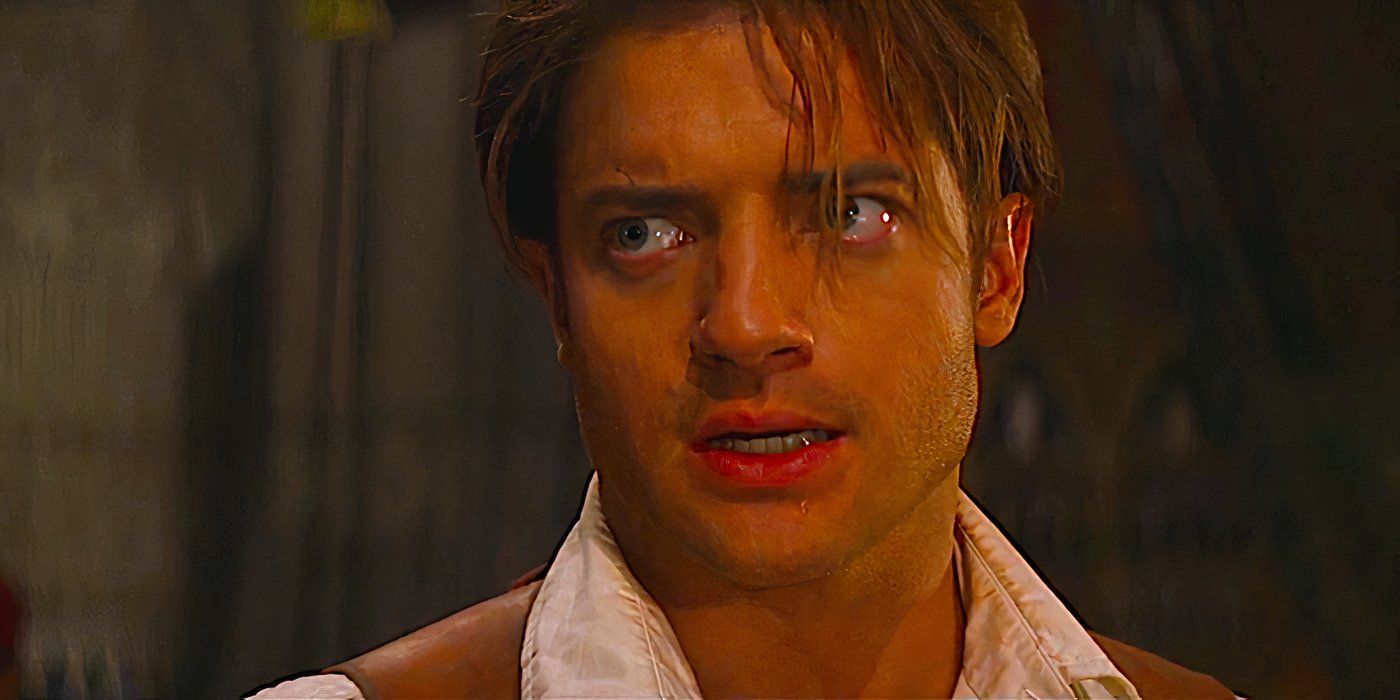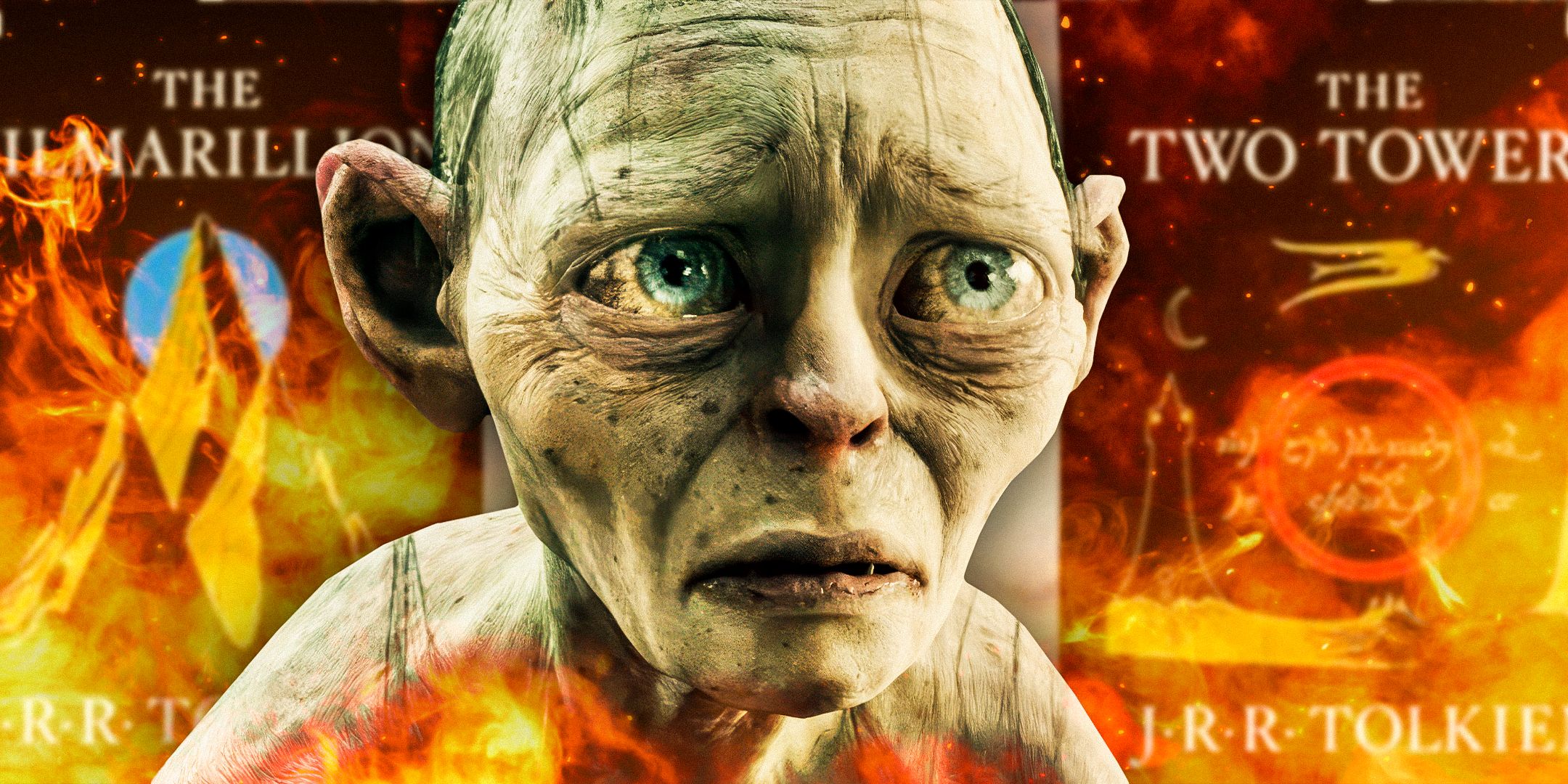Planet Alpha is a puzzle platformer that asks a lot of questions, but gets too bogged down in its own muddled mechanics to answer them. What is the cost of war? Will nature run its course? What separates man and machine? Planet Alpha is interested in the exploration of these ideas, but through its short four-to-five hour play-time, it makes the user do most of the heavy lifting.
Planet Alpha tells the story of an explorer alone on a mysterious planet. After a brief journey through the alien world, the player discovers this planet is under siege by an army of robots. They must run, jump, and hide to evade the war that engulfs the world. Maybe they’ll discover something greater along the way.
Related: No Man’s Sky: A Beginner’s Guide To The NEXT Update
It must be said that Planet Alpha looks phenomenal. Developed by a tiny team at Planet Alpha ApS in Denmark, it’s truly a testament to their skill and quite a calling card for future endeavors. Tim Loye Skafte’s art is the stand-out here; the bio-luminescent scenery is reminiscent of No Man’s Sky at its best. The player traverses across deserts, dense jungles, ancient temples, and dark caverns. Each location is breathtaking, requiring a moment’s pause (accessing the “pause” menu unfortunately obscures the player’s view) to take it all in. Subtle details like the movement of primordial beasts in the distance to the ebb and flow of anemone-like plants create a rich and layered environment.
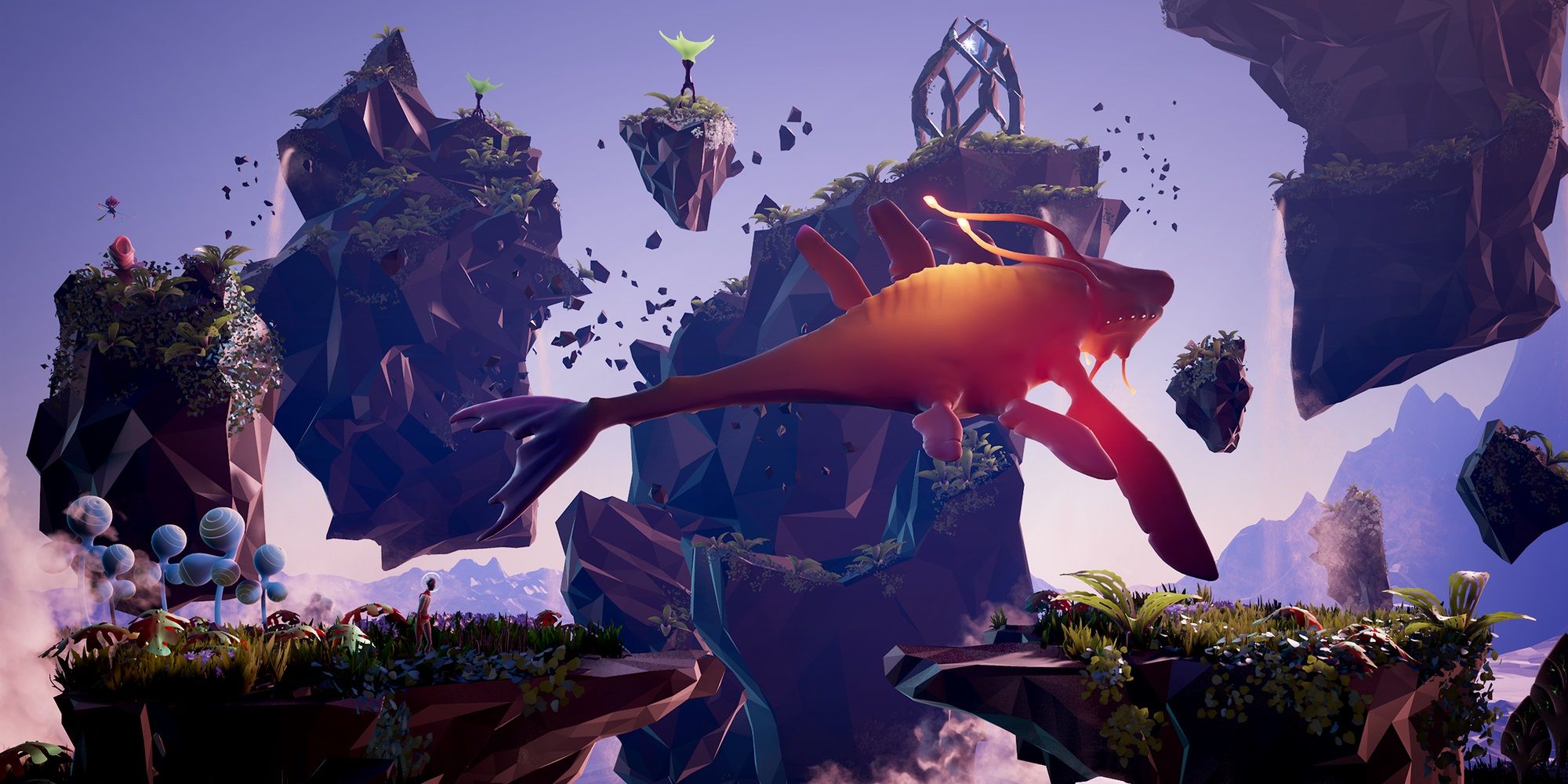
In the same spirit of the beautiful backgrounds, the character designs are colorful and light. The adventurer is almost a blank slate, humanoid and featureless, allowing the player to place their own interpretation on his/her origin. The robots are like 1950s space invaders, adorable even as they laser their way through nature.
Past its arresting visuals, Planet Alpha has little else to offer. The gameplay is at times both tedious and frustratingly difficult. Time is split between physics-based puzzles, stealth sections, and basic platforming. Each one has its heights: the discovery that a giant skeleton can be used to crush your enemies, finding an alternate route below the watching robot eyes, and tense chase sequences from a giant creature. Yet there’s a surprising lack of polish when it comes to the mechanics.
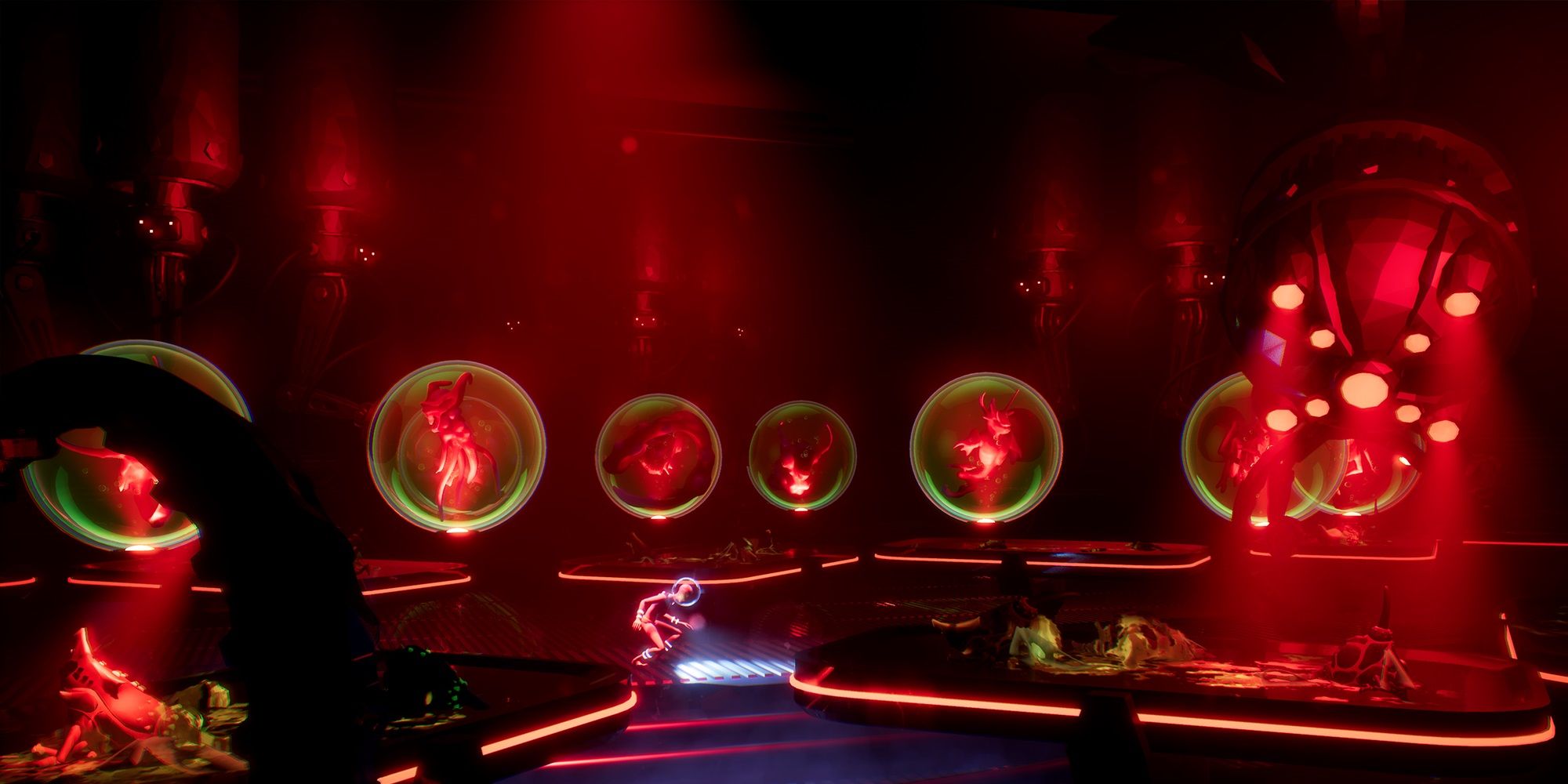
The puzzles are very traditional. Move a block to the right to create a stepping stone for access to higher ground. Occasionally back-track to find an additional block. Planet Alpha struggles to advance these mechanics to new heights, but the change of scenery from its largely monochromatic peers at Playdead (Limbo and Inside) is a nice touch.
What Planet Alpha does offer is the player’s ability to change the time of day to solve puzzles. With a simple click of a button, the sun fades in the distance, welcoming a host of new flora and fauna to come out to play. The inverse is also true; trading night for day can clear paths that were once obstructed. What presents itself as unique mechanic soon revels in its simplicity. All puzzles are either cleared at night or day; the mushrooms create a pathway in the moonlight, the bugs feed when the sun is out. Sections where the player is unsure how to move forward become a hackneyed button mash.
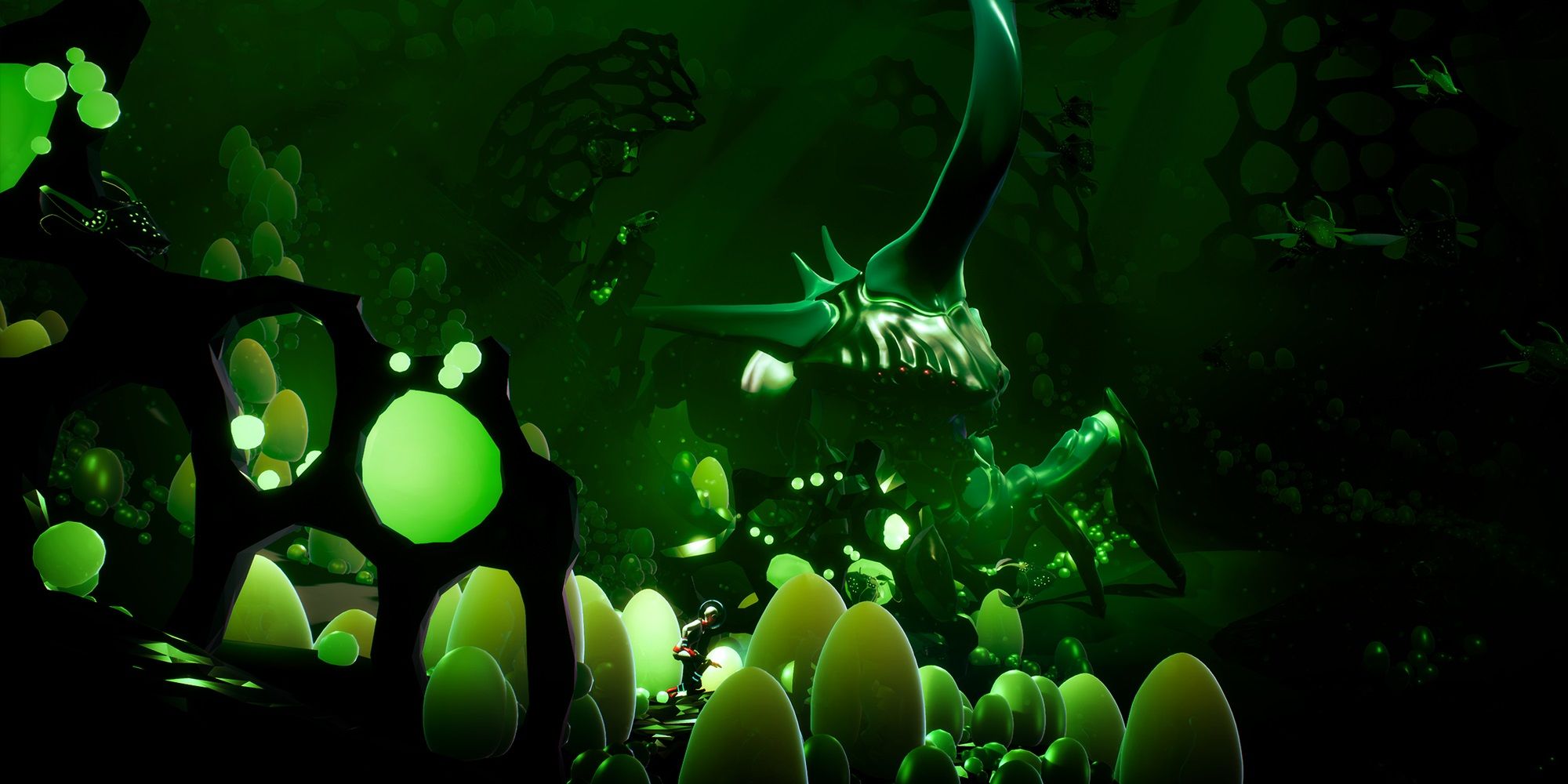
Planet Alpha‘s platforming misses the mark entirely. Most of the gameplay involves jumping across gaps, clinging to the foliage on the cliff-side. It would be enjoyable, maybe even serene at times, but the finicky mechanics make it hard to tell when a jump is possible. Often times a player will die without any idea how they missed a jump that seemed simple. On sections where the level zooms past (either due to falling debris or sloped “slides”) there’s far too much trial and error for any fluidity. The game has a very generous checkpoint feature, but one could argue it’s better to start over less frequently than constantly have to reset even if it’s a short ways back.
There are several low gravity sections that feel thrown in for the purposes of mixing-up more basic platforming and while they are occasionally fun, they feel like DLC interspersed throughout the main story. There’s no actual connection to the narrative, save for some cryptic achievements (on Steam, PS4, and Xbox) , so the real mystery is why they were included at all.

Where Planet Alpha shows its true colors is in its stealth levels. A ducking mechanic is frequently used to go through narrow sections of platforming, but its true purpose is to help avoid detection from the many machines of the robot army and the occasional bit of aggressive wildlife. These sections are consistently frustrating. When ducking in high grass or other vegetation, the player remains unseen by the enemy. But sometimes even the slightest movement instantly alerts them to your position. Other times the player can immediately route a pursuing robot by simply ducking in the grass, even if the robot is watching them during this action. This can result in some unintentionally hilarious gameplay. On the flip side, the consequence for failure is extreme here: most of the enemies instantly kill the player. The player will often find themselves trying to sprint through tougher sections, waiting for inordinate amounts of time for enemies to finish their cycle, or repeating areas due to small errors of movement. These stealth sections highlight a key problem with Planet Alpha: it sets its sights for the moon but never quite takes off.
Planet Alpha has major issues with its mechanics but all that might be forgiven if it told the story it set out to tell. After all, the puzzles and platforming are at times frustrating, but never impossible. There’s always some way through the player didn’t think of that will leave them smacking their forehead. But the story offers no such reprieve.

The player is an explorer, clearly from another world (he/she wears a space suit). Their purpose on the planet is unknown, their sudden ability to control time unexplained. These questions go unanswered under the false guise of “interpretation.” The cyclical nature of the story and its silent, meditative telling is serene but there’s a dissonance between the ideas it presents and the way in which the player must pursue the answers. The player feels entirely inactive in the story (save for one segment towards the end), simply watching as the world falls around them. They have no connection to this land, but pursue its greater mysteries. 2D platformers are limited in their design, and in Planet Alpha, it really shows. The story’s silence does not speak volumes here; it says nothing. The game may take you to the depths of a planet’s core, but on its grander themes, it fails to ever scratch the surface.
Planet Alpha is pretty and will please those looking for a short trek across new and familiar ground, but time and money would be better spent on superior predecessors.
Next: Elea Review – A Clumsy But Beautiful Walking Sim
Planet Alpha is out now on Steam, Xbox One, PS4, and Nintendo Switch for $19.99. A digital PS4 copy was provided to Screen Rant for purposes of review.
